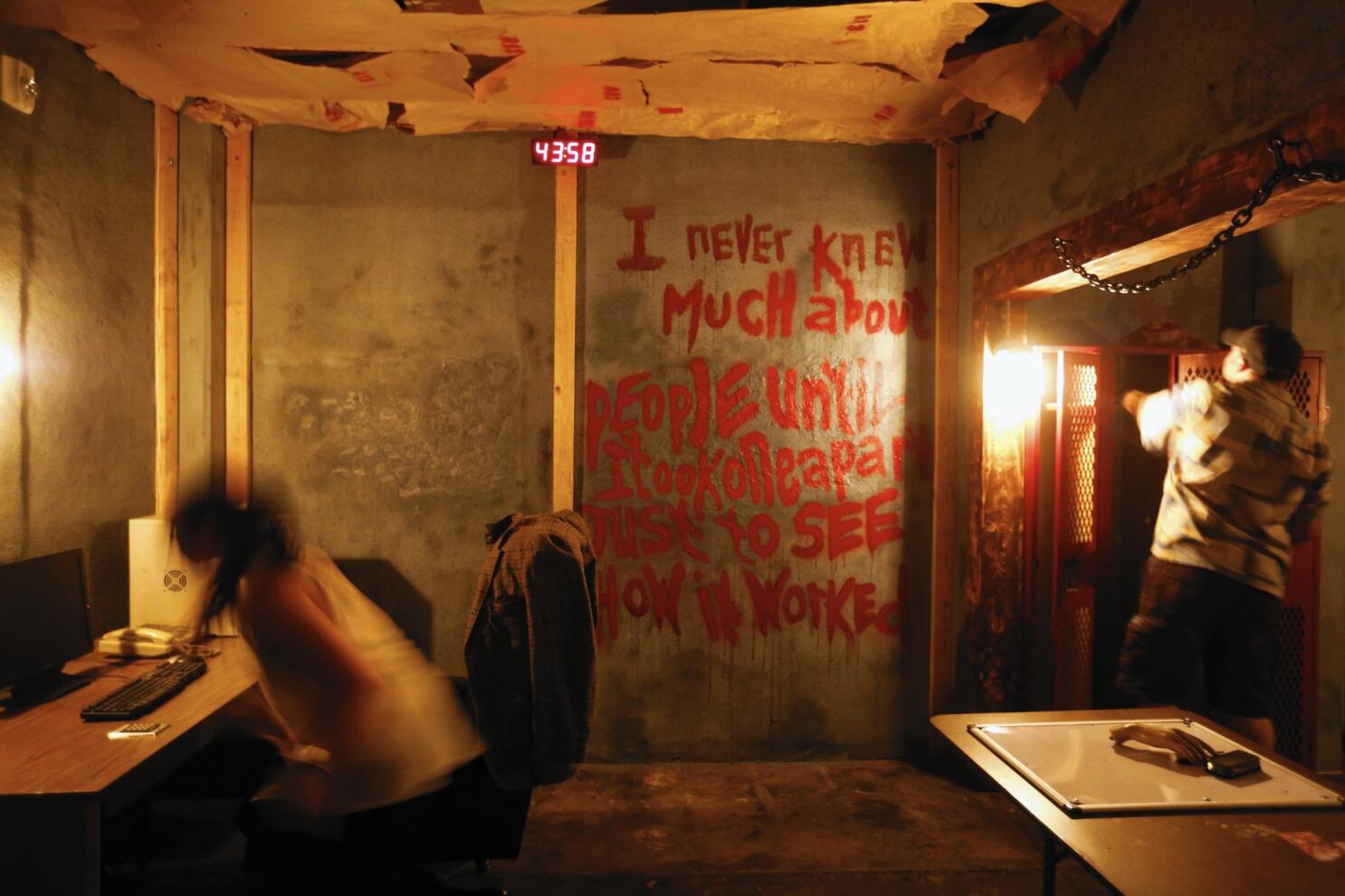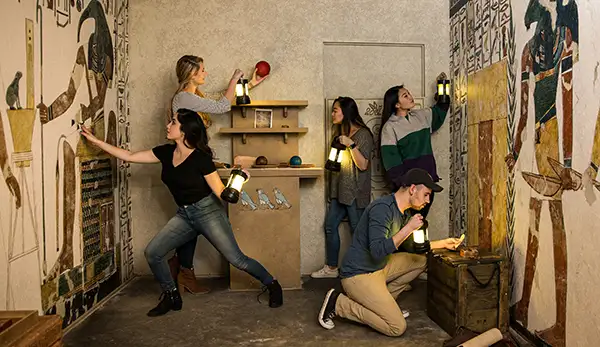Fun and Testing Escape Room-- Plan Your Next Adventure
Fun and Testing Escape Room-- Plan Your Next Adventure
Blog Article
Team Methods: How to Collaborate Successfully in a Retreat Space
Teams have to proactively listen to each participant's insights, designate roles that line up with specific toughness, and maintain routine check-ins to ensure focus and protect against redundancy. By cultivating a setting that values communication and versatility, groups can dramatically increase their efficiency and success rates.
Establish Clear Communication

To facilitate clear interaction, it is necessary to designate a main point of contact for info circulation. This duty entails summarizing searchings for and recommended methods to guarantee everyone remains on the same page. Additionally, adopting a methodical strategy to conversations can protect against disorderly exchanges. For example, quick, focused updates from each employee can maintain the team educated without frustrating them with information.

Appoint Functions Tactically
While clear communication establishes the foundation for efficient team effort, designating functions strategically ensures that each team member's strengths are utilized properly. In a getaway space scenario, the time-sensitive and complicated nature of difficulties demands a well-organized strategy to job delegation. By determining and leveraging specific expertises, groups can optimize their analytic capacities and boost overall efficiency.
First, evaluate the special skills and characteristics of each participant. As an example, a person with a keen eye for detail might stand out in finding concealed objects, while a sensible thinker might be better suited to fixing puzzles - best escape room. It's just as essential to have a leader who can oversee development, handle the timeline, and make crucial telephone calls when required. This role commonly requires solid organizational and interpersonal skills.
2nd, ensure that roles are adaptable and versatile. As brand-new obstacles arise, the team has to have the ability to pivot, reapportioning tasks as called for. This adaptability assists keep energy and stops bottlenecks that can take place as a result of stiff duty assignments.
Eventually, a critical approach to duty project not only makes the most of the staminas of each group member however also fosters a cohesive atmosphere, driving the group in the direction of a successful getaway.
Make Use Of Diverse Abilities
Recognizing and utilizing the diverse abilities within your team can considerably boost your efficiency in a getaway Clicking Here area. Each staff member brings one-of-a-kind strengths to the table, and properly leveraging these capacities can quicken analytic and enhance total performance. For instance, an employee with solid analytical abilities might excel at deciphering complicated codes or patterns, while another with keen empirical abilities may quickly find covert ideas that could forget.
Motivate group participants to articulate their insights and concepts immediately, guaranteeing that all potential services are thought about. Furthermore, assigning jobs that line up Bonuses with each member's staminas can avoid bottlenecks and guarantee that progress is constant.
Furthermore, variety in skills commonly converts to variety in thinking designs, which is important in a getaway area setup. While some obstacles may call for rational reasoning and precision, others could profit from imaginative and association of ideas. By recognizing and leveraging this diversity, groups can resolve a more comprehensive variety of difficulties better, therefore enhancing their possibilities of an effective retreat.
Manage Time Efficiently

First, allot preliminary minutes for a fast survey of the room. Identify visible puzzles and separate tasks based upon staff member' strengths, making certain that nobody is still. Set interior time checkpoints to evaluate progress occasionally; as an example, objective to have half the puzzles fixed by the mid-point of the game. This practice can help maintain the group focused and stop time from escaping unnoticed.
Furthermore, prevent passage vision. If a puzzle is taking too long, rotate group members or carry on to another difficulty, returning later with fresh point of views. Interaction is vital-- maintain everyone upgraded on resolved puzzles and staying jobs to stay clear of repetitive initiatives.
Lastly, use any kind of hints or clues sparingly however purposefully - best escape room. Understanding when to request assistance can conserve useful time. By adhering to these time monitoring concepts, teams can dramatically boost their chances of an effective and visit the website satisfying escape area experience
Debrief and Reflect
Representation is a crucial element of team advancement and enhancement in the context of escape areas. As soon as the obstacle is completed, whether effectively or otherwise, it is vital for the team to participate in an organized debriefing session. This procedure enables staff member to evaluate their efficiency, identify toughness, and identify areas for enhancement.
Begin the debrief by discussing what went well. Highlight specific circumstances of efficient communication, analytic, and partnership. Identifying these positive actions strengthens them and urges their rep in future difficulties.
Following, resolve the obstacles encountered. Review moments of complication, miscommunication, or inefficient techniques. Urge an open and positive dialogue where group participants can share their perspectives without concern of criticism. This cultivates a society of continual enhancement and discovering.
Final Thought
In conclusion, successful partnership in a retreat room is based upon clear interaction, tactical duty tasks, the efficient usage of varied abilities, and proficient time administration. By developing a natural and adaptive group atmosphere, the probability of effectively resolving challenges and achieving the objective of running away the room is significantly enhanced.
Report this page